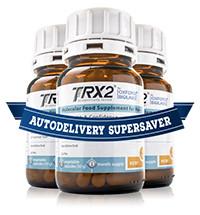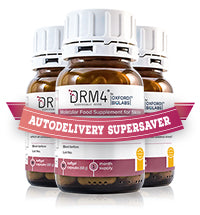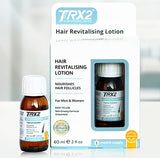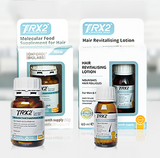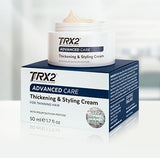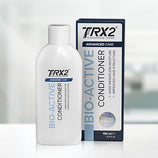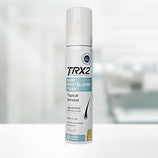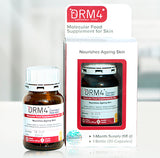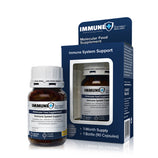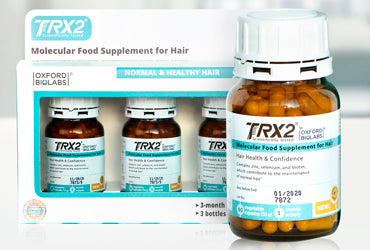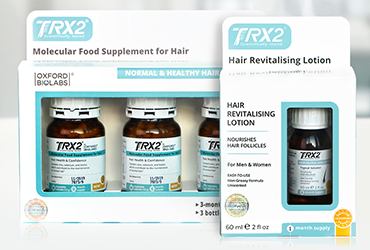Menopause brings with it all sorts of undesired symptoms, more so if you don’t understand what you are going through. Talk of hot flashes, night sweats, mood swings, dry skin, sleep disorders, memory issues, and heart palpitations, among others.
Heart palpitations are especially notorious for the scare they bring. Just when you least expect it, you get this abnormal thudding heart. You know you are too young to be having a heart attack but can’t help worrying about it, so you rush to your GP.
They run a bunch of tests, including a 24-hour bp monitor and even a Doppler test. Then, the results come back, and your doctor says everything is fine. It’s just a little menopause-related heart palpitation. The news comes as a relief but also as a reminder that you have one more menopause symptom to deal with.
Well, here’s what you need to know about heart palpitations.
What are Heart Palpitations?
Also known as irregular heartbeats or arrhythmia, heart palpitations are characterised by heartbeats becoming more noticeable. The heart may pound or race irregularly by about 8-16 beats. It often occurs during hot flushes, although the two may happen independently.
Heart palpitations may also occur during periods and pregnancy due to changes in hormone balance. That said, menopausal heart palpitations are usually harmless – they are not an indicator of underlying health issues unless accompanied by other symptoms (more on that later).
Causes of Heart Palpitations
The estrogen level rises and falls during perimenopause – the window before menopause when periods are still coming but irregularly. This change in estrogen levels can lead to overstimulation of the heart, especially when the hormone is in short supply in the body.
Estrogen plays a role in the dilation and constriction of the coronary arteries. They contract under low estrogen levels and dilate when the amount is high; this is where the irregularity in blood pressure and heart rhythm kicks in.
Moreover, estrogen has been found to affect the autonomic nervous system – the part that regulates subconscious bodily functions. When estrogen levels fluctuate, so does the stimulation to the nervous system, which directly impacts heat rhythm.
Other Causes of Irregular Heartbeat may include:
- Stress
- Fever
- Stimulants such as caffeine, nicotine, and alcohol
- Intense exercise
- Dehydration
- Low blood sugar
- Medical conditions such as atrial fibrillation, an overactive thyroid gland, or supraventricular tachycardia
- Medication for an underactive thyroid gland
How to Stop Heart Palpitations
So, can heart palpitations go away, and how do you deal with them? Yes, they should subside and eventually end during the post-menopause phase. In the meantime, medical experts recommend natural ways to stop heart palpitations. Hormone replacement therapy may work, too, but is riskier and only preferable for severe cases where home remedies fail to work.
Here’s what you can do:
· Get a Baseline and Don’t Panic
Now that you know heart palpitations are not so uncommon, there is no need to panic. Also, panicking will only make things worse because of the extra adrenaline.
You also want to get a baseline for whatever triggers the irregular heartbeats and how much. For one, get a heart rate monitor and keep the records. You should also note any events before or during the episodes of a racing heart.
For instance, were you working out? Had you just had a cup of coffee, a smoke, or some disturbing news? Getting the baseline will help you avoid the triggers and give you something to share with your doctor should you choose to consult them.
· Stay Hydrated
Some women report that drinking water just when the palpitations are kicking in relieves them. Not to mention, staying hydrated is healthy and may help you avoid all sorts of health problems.
· Limit Your Stimulants Intake
Things that might stimulate your nervous system do not pair well with heart palpitations. They include caffeine, smokes, and alcohol. Caffeine has especially been linked to the worsening of vasomotor symptoms during menopause.
Remember that you don’t have coffee alone to watch out for. Chocolate, energy drinks, soda, decaf teas, and non-herbal teas such as green tea have some caffeine as well.
· Boost Your Nutrition
Low magnesium and an imbalance of vital salts may cause palpitations. Be sure to eat for a healthy heart. Consider eating little portions more often to ascertain that you don’t get big troughs in your blood sugar levels.
Besides, it is always advisable to deal with your stressors. For instance, if you are experiencing hair loss –one of the most common stressors for women going through menopause – consider taking hair growth supplements to help boost your hair follicle potassium channels.
· Read the Labels on Your Drugs
Some OTC medications such as decongestants, anti-allergy pills, antihistamines, and diet pills may contain stimulants. If you are on such or other prescription medication and find that the palpitations are getting worse, consult a professional to find out if there is any relationship and whether there are alternatives.
· Learn How to Reset Your Heart Rhythm
Although most of these episodes last only a few seconds or minutes, the discomfort may make them seem longer. Here’s what you can do to get things back in line:
- Breathe slowly and deeply through your nose and then out via your mouth.
- Splash cold water onto your face. It is known to stimulate the vagus nerve, which is responsible for regulating your heartbeat.
- Cough forcefully. This, too, may stimulate the vagus nerve.
- Practice relaxation techniques such as yoga and mindfulness.
When Is It Time to See a Doctor?
Are heart palpitations a sign of menopause? Yes, but they can be a sign of something else, especially if accompanied by the following symptoms:
- They happen too often
- They go on for more than a few minutes
- They keep worsening over time
- You start experiencing shortness of breath
- You get chest pains
- You feel dizzy
- You faint
Hormones can cause irregular heartbeat during perimenopause and menopause. The good news is that the symptoms should subside after menopause kicks in. The bad news is that you might not be able to tell when your estrogen reserves will be completely exhausted or when symptoms such as heart palpitations will stop manifesting. Thankfully, understanding what’s going on and what to do can help you deal with the situation more effectively.
